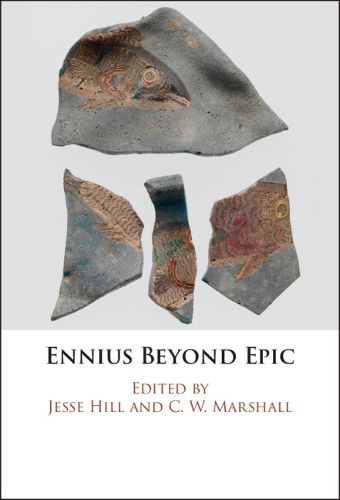Readings Newsletter
Become a Readings Member to make your shopping experience even easier.
Sign in or sign up for free!
You’re not far away from qualifying for FREE standard shipping within Australia
You’ve qualified for FREE standard shipping within Australia
The cart is loading…






Quintus Ennius (239-169 BCE) was Latin literature's extraordinary founding father: he composed a striking array of texts in a striking array of genres (tragedy, satire, philosophy, epigram, epic, and more), many of which he in fact introduced to, or invented at, Rome. Modern scholarship, however, has focused overwhelmingly on just one Ennian poem: his epic, the Annales. Assembling an international team of literary critics and philologists, Ennius Beyond Epic provides the first assessment of Ennius' corpus in all of its unruly totality. Its thirteen chapters range widely: some examine themes throughout the poet's fragmentary output; others offer analyses of particular non-epic texts (e.g., Andromacha, Sacra historia, Saturae); still others study the Roman reception of Ennius' corpus from Pacuvius to Catullus to Apuleius and beyond. The picture that emerges is of a New Ennius: a daring, experimental, and multiform author.
$9.00 standard shipping within Australia
FREE standard shipping within Australia for orders over $100.00
Express & International shipping calculated at checkout
Stock availability can be subject to change without notice. We recommend calling the shop or contacting our online team to check availability of low stock items. Please see our Shopping Online page for more details.
Quintus Ennius (239-169 BCE) was Latin literature's extraordinary founding father: he composed a striking array of texts in a striking array of genres (tragedy, satire, philosophy, epigram, epic, and more), many of which he in fact introduced to, or invented at, Rome. Modern scholarship, however, has focused overwhelmingly on just one Ennian poem: his epic, the Annales. Assembling an international team of literary critics and philologists, Ennius Beyond Epic provides the first assessment of Ennius' corpus in all of its unruly totality. Its thirteen chapters range widely: some examine themes throughout the poet's fragmentary output; others offer analyses of particular non-epic texts (e.g., Andromacha, Sacra historia, Saturae); still others study the Roman reception of Ennius' corpus from Pacuvius to Catullus to Apuleius and beyond. The picture that emerges is of a New Ennius: a daring, experimental, and multiform author.